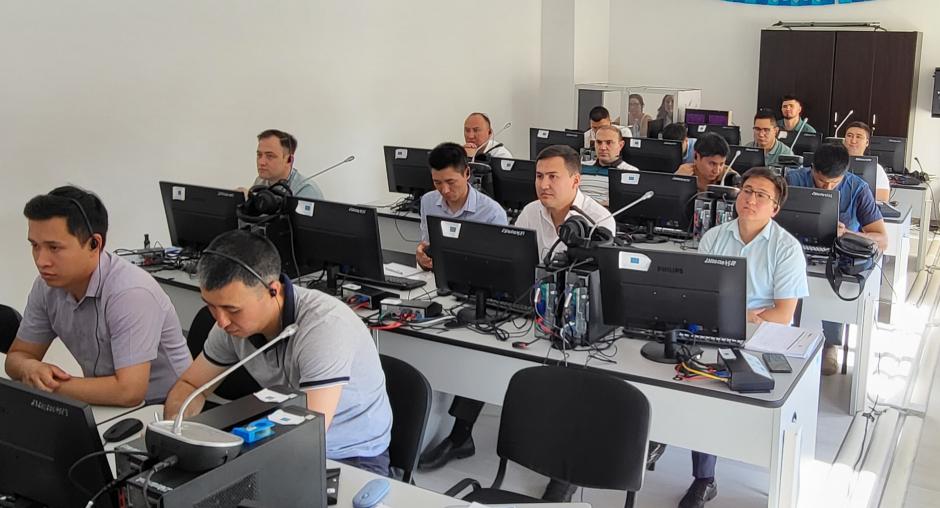OSCE continues training Central Asian law enforcement experts to combat cybercrime through digital forensics

The second part of a two-week training programme on open-source digital forensics for law enforcement experts from Kazakhstan, Kyrgyzstan and Uzbekistan took place from 20 to 24 June in Nur-Sultan. The course, organized by the OSCE Transnational Threats Department in close co-operation with the OSCE Programme Office in Nur-Sultan and the Law Enforcement Academy under the General Prosecutor’s Office of the Republic of Kazakhstan, follows the first part, which took place in May.
Digital forensic experts from Estonia, Georgia, Norway and Romania delivered the training, which was originally developed by the European Cybercrime Training and Education Group (ECTEG). The course provides participants with the knowledge and skills necessary for understanding the steps and key principles of the digital forensic process, reading computer data and using available open-source forensic tools to analyze data.
“Nowadays, digital evidence plays a key role in all sorts of crimes, including traditional ones. The capacity to examine digital evidence is thus becoming an essential part of modern policing,” said Anna Illamaa, one of the trainers and a digital examiner at the Estonian Police and Border Guard Board.
This was echoed by Ivar Friheim, an investigator and lecturer from the Norwegian Police Service, who underlined that “as digital technologies are becoming an indispensable part of our every-day life, digital footprints provide key evidence in many criminal investigations, just as fingerprints or DNA samples”.
The course was delivered as part of the OSCE extra-budgetary project “Capacity Building on Combating Cybercrime in Central Asia” funded by the United States of America and the Republic of Korea.
